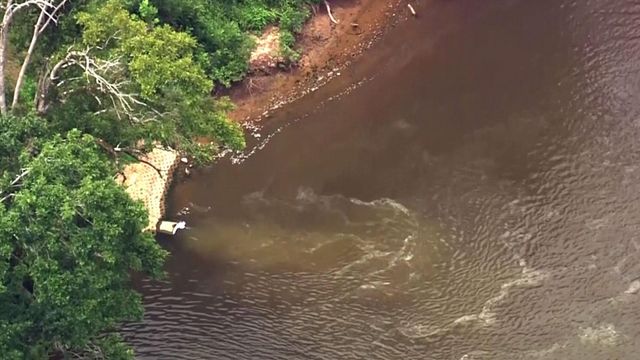State science panel nearing safety recommendation for GenX
Scientists appointed to advise the state on GenX say they're getting close to a recommendation on safety levels.
Posted — UpdatedThe 16 members of the state Science Advisory Board, which met in Raleigh Monday, have been talking to scientists across the U.S. and around the world to learn all they can about GenX, an unregulated chemical discovered last year in the Cape Fear River.
Tests show high doses of the contaminant can cause liver damage in animals, but no one knows exactly what's a safe level for humans.
Dutch scientists have also been studying GenX because the company that makes it, Chemours, also has a plant in the Netherlands. So, the North Carolina panel held a video conference with scientists at the Netherlands National Institute for Public Health and the Environment.
"What we've got first of all is a lot of confirmation," said Jamie Bartram, who heads the Science Advisory Board. "Much of what they've done confirms what we've been looking at."
The panel's job is to advise state regulators on whether they've set the right health safety limit for GenX. North Carolina's limit of 140 parts per trillion is almost identical to the Netherlands' limit.
Board member Jackie MacDonald Gibson said both teams used the available data correctly, but because there's no GenX testing data for humans, there's a lot of uncertainty.
"In some cases, the animal is a good model. In others it isn't. We just really don't know what the case is for GenX," said Gibson, an associate professor at the Gillings School of Public Health at the University of North Carolina at Chapel Hill.
Monday was the board's third meeting on GenX, and Wilmington activist Beth Markesino criticized the scientists for having made no decision yet.
"The people of North Carolina are looking at the minds right here to help us. Every day that goes by is another day that we don't have clean water," Markesino said.
Bartram, director of the Water Institute at UNC-Chapel Hill, said he understands the urgency, and he is hopeful the panel will have a recommendation by March after some additional data is analyzed.
"We tread this agonizingly difficult tightrope where we want to move as fast as we can because of that legitimate concern, but at the same time, we need to make sure that the right science is in place," he said.
The Science Advisory Board also will advise the state on other emerging contaminants – chemicals created by industries that find their way into the environment. There can be dozens of unregulated chemicals in the same water, and because the makers of those chemicals are allowed to keep their characteristics secret as confidential business information, there's often little or no data available as to how they affect humans.
Board members said they're concerned about how those various chemicals might interact.
"On our planet, we produce an enormous and ever-increasing number of new chemicals, and we need to manage those in a way that protects human health and protects the environment," Bartram said. "We are going to get things which we know less about coming onto our agenda, and we need to start thinking now about how we’re going to approach those, and the approaches will need to be different."
Related Topics
• Credits
Copyright 2024 by Capitol Broadcasting Company. All rights reserved. This material may not be published, broadcast, rewritten or redistributed.






